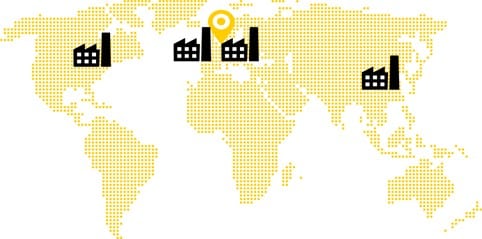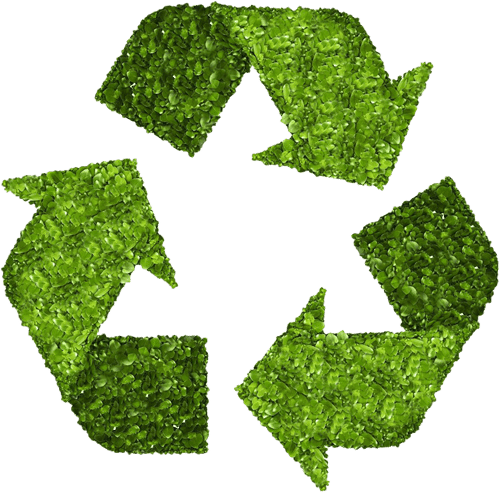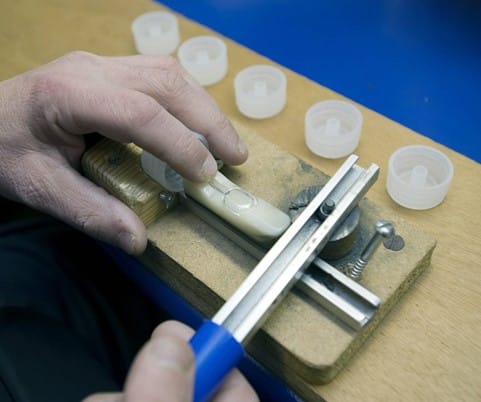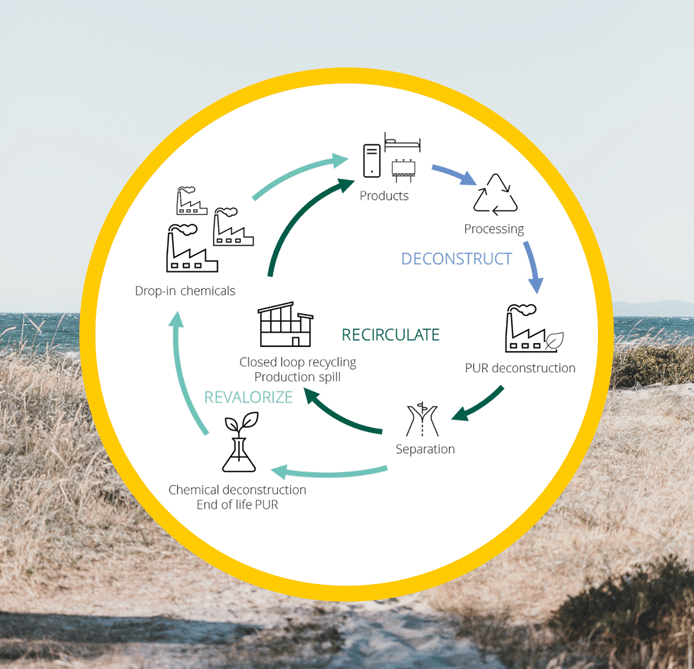Sustainability
At SP Group we work systematically to reduce our environmental impact and promote great environmental responsibility. We do this by using environmentally-friendly technologies and materials through a certified environmental management system. SP Group is constantly working to reduce the group's environmental impact by seeking to reduce its consumption of water, electricity and heat. Thus, we are reducing our carbon emissions and optimize energy consumption. Our goal is also to contribute to environmental sustainability through our customers' use of SP Group's products.
Hence, more than 26 % of our revenue comes from the greentech industry that uses our products to
- Reduce energy consumption
- Produce renewable energy


Certificates
As part of Tinby's focus on the environmental impact, the company was certified in 2016 according to the international standard ISO 14001, which is a family of standards related to environmental management system that ensures that Tinby's processes, activities and competences are aimed at minimizing external environmental impacts. As a result, environmental impacts are identified and among these, planned improvements in environmental performance are prepared. In addition, the most significant environmental conditions are managed and monitored.
Ubiquitous
Tinby operates globally with the delivery of PUR solutions to the greentech industry in particular. With modern production facilities in Denmark, Poland, USA, Latvia and China, we have the opportunity to supply polyurethane solutions in large parts of the world. This allows us to reduce long transport routes and thus avoid unnecessary environmental impact as a result of carbon emissions during transport.


Life Cycle Assessment
In many ways, plastics are superior to most alternative materials in terms of strength, flexibility, weight and price. It is, among other things, lighter and more flexible than metal, which is why it is most often used as an alternative to metal in different industries. For example, plastic is used instead of metal on the exterior parts of rolling stock such as agricultural machinery, tractors, combine harvesters, buses and cars. This not only prolongs the durability of the material but also contributes to increasing the performance of the transport equipment and thus to reducing fuel consumption.
Waste management of flexible polyurethane
Unlike other types of plastics and especially other types of materials, polyurethane can be manufactured with very large variations in both density and stiffness, which is reflected in the great variety of products we are manufacturing for our customers. We all enjoy the amazing properties PUR provides but it presents us with some crucial challenges in terms of recycling. However, there are several ways to recycle PUR:
Mechanical recycling
- Rebonded foam - the most common method to process PUR: shredded PUR are shaped into new articles and sprayed using a specifically designed adhesive. The resulting rebounded foam is strong and versatile, making it extremely useful for new products such as carpets, sports mats, cushions etc.
- Widely used for the reuse of special mattresses.
Chemical recycling
- Another method consists of a chemical glucose process. Very simplified, the used PUR is transformed into a 'recycled polyol' from which it is possible to react with isocyanate. The recycled polyol has the same properties as a new or 'virgin' polyol and can thus be included in the production of new polyurethane products.
- This method involves the use of chemicals and energy and is therefore particularly useful in countries where waste management is typically carried out by landfill.
Energy recovery
- Polyurethane has a higher calorific value and can by controlled incineration be used for the production of electricity and district heating.
- Waste incineration is widely used in Northern European countries and is therefore an environmentally friendly alternative to mechanical and chemical recycling.

As an ISO-certified production company one of Tinby's main focus points is on the concept of circular economy. Circular economy aims at eliminating waste and preserving materials for as long as possible and with the highest possible value. Resources that would otherwise have ended up as waste are included in the production chain anew. The term 'waste' is being abolished, so to speak. We are thus spending resources on the training of staff in recycling and sorting tasks.

PURfection
PURfection, a new project collaboration between industry and research, aims to further develop and test groundbreaking Danish technology for the recycling of polyurethane. Due to polyurethane's durability and high performance, it is a widely used plastic type found in many different products, but after use, 95% of it ends up being incinerated or landfilled. The Innovation Fund is investing 12 million DKK in the project.


Social sustainability
Tinby A/S collaborates with the workshop 'Grønnemoseværkstederne' in Svendborg on recycling of metal inserts used in the PUR casting for the purpose of being included in new products. The workshop employs approx. 160 people distributed across seven different workshops and offers a variety of possibilities such as employment, activities and socializing.
In addition, we can mention that, in collaboration with Nordfyns Municipality, we have hired a refugee who completed the Integration Basic Education (IGU) program at Tinby. The IGU program aims to ensure that refugees acquire the qualifications needed to either begin a vocational education or gain regular employment.
